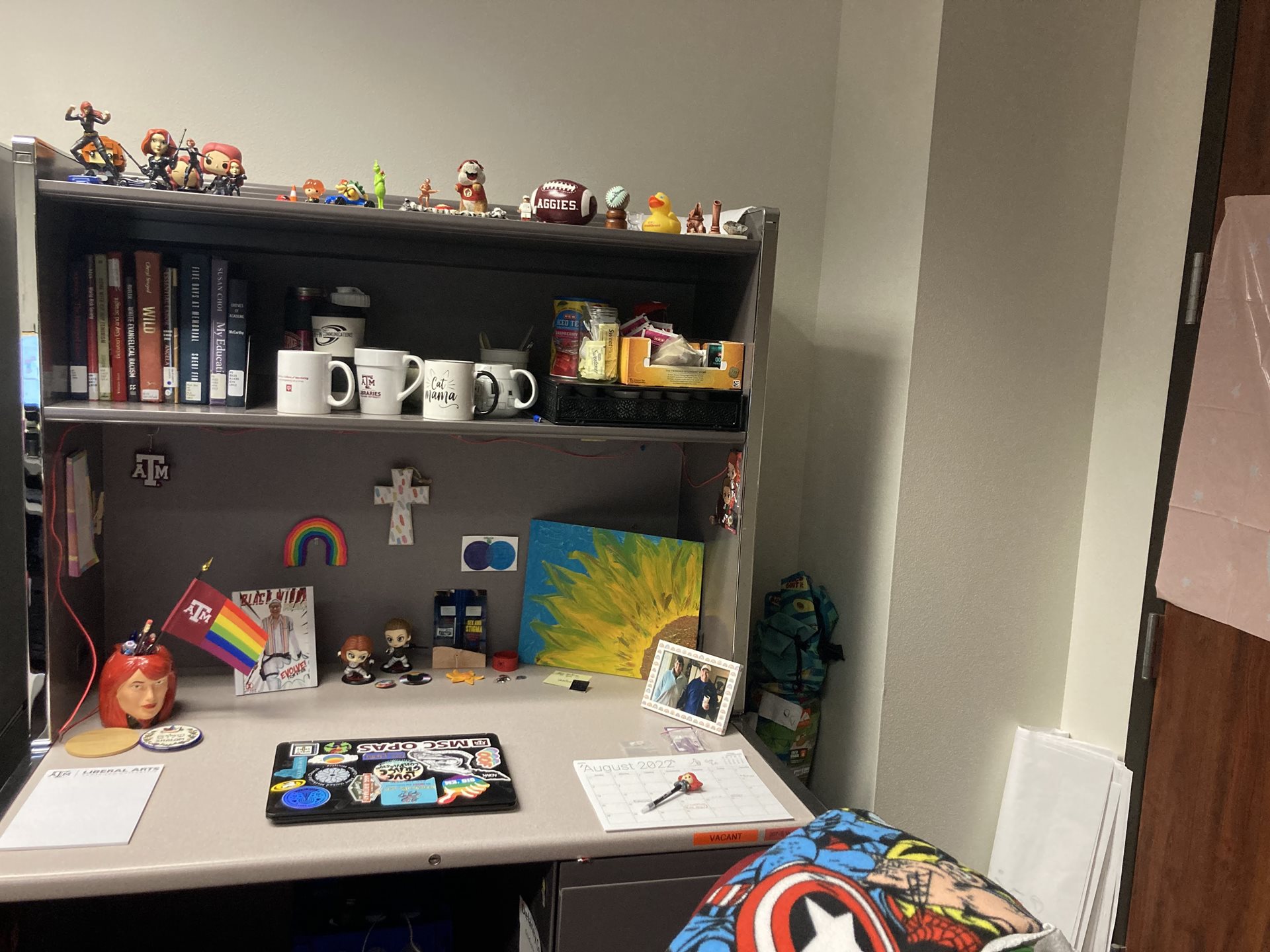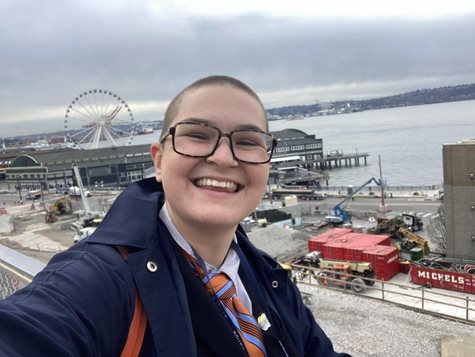September 2022

Credit (Where?) Credit is Due (?)
Delaney Couri
In my 7.5 years at Texas A&M, I have been a member of three major research teams, held two major leadership positions in organizations, and worked five on-campus jobs where I was on another four research teams and co-taught and designed three courses for undergraduates, graduate students, staff, and faculty. I have also held four off-campus jobs and two service positions.
Not bad for a second-year doctoral student. All of this work, my work, has impacted every piece of my journey and made me who I am today. And yet, when I look past my CV, I feel as if I have nothing to show for it.
Whereas I refer affectionately to all of this as my work, I actually own none of it. Think of the difference between paying monthly payments on an apartment as opposed to owning a house. Either way, you’re paying; one way you get dividends and one way you don’t.
Upon first glance, this doesn’t bother me too much. All of my work was done in collaboration with others and all of it (hopefully) made the world a kinder place- thus, ownership of this kind of cognitive labor feels colonial and individualistic. What is the point of fighting against these notions of individuality and colonialism in my work just to turn around and commodify my accomplishments, furthering the very systems I work to tear down?
If I had an answer, maybe I wouldn’t have to write this at all.
Someone once told me that, just because I was doing work that I believed in, I still shouldn’t be expected to do it for free. Passion is not a voucher for overworking and underpaying individuals (particularly individuals of color, women, or individuals holding intersectional marginalized identities).
And, if you have any modicum of power in an institution, I want you to stop and read that sentence again. Just because I want to end racism, for instance, doesn’t mean that if I ask you to pay me to do it my intentions are impure. I have to eat, too, in a neoliberal capitalist society.
Back to my point, I have been working, for money and passion, yet, I can’t help but wonder; at the end of the day, am I allowed to keep doing this type of collaborative work without the say of those who journeyed alongside me?
To complicate this question further, I am a graduate student. So when I say worked alongside, I mean worked under. A clarification; every boss/supervisor I’ve had would push back against the notion that I worked “under” them and I agree, in their eyes I was working alongside them. But as I often reiterate in class, as soon as I leave their office/classroom/building, I’m back at square one, seen as just a source of cheap labor, or worse, as a number in enrollment statistics. (None of the individuals who see me this way work in my department/at any of my jobs, by the way. I am so grateful for that.).
Early in the program, I was told that you know you’re ready to dissertate when you start telling your advisor what to do and not the other way around. When the work becomes your own. Although I’m just a second year student, I’ve had faculty members tell me that I don’t need to wait on them to establish an idea we’re discussing…but, don’t I?
During these conversations, I have never been self-aware enough to understand why I feel the way I do when they tell me this. Why do I feel like I need them to hold my hand as I move forward with this work? Looking back, I can see that the reason is because of what I mentioned earlier- I’m just a graduate student.
In fact, the whole story behind my hesitancy can be summed up in three letters, placed after your name (or not): Ph.D. When I was wondering if my program is right for me, my parents kept reminding me how useful those three letters were. If “Delaney Catalina Couri, M.Ed.” may help me get some low-level consulting gigs, “Delaney Catalina Couri, Ph.D.” would be even better.
Because, let’s be honest. If I walked into the administration building right now with the best idea in the world, I would be laughed out. Who am I, to affect change? Even as I write this I realize it sounds self-pitying; disempowering. But I’m just trying to be realistic.
As a few friends and faculty would tell me, “So what?” Every layer of privilege and prestige, unearned and earned, provides people with more or less credibility than others, and having a Ph.D is no different.
I can hear the words of others ringing in my head already “So, life’s not fair. Get over it.” But there’s another voice, too. Who looks at their own disempowerment and says forcefully, “Get up you idiot,” then softly, “We can do this. Or at least we have to try.”
So I won’t use this blog post as a pity party; I won’t use it as a disavowal against those with the three letters after their name; I won’t even use it as a space to hate on any current administration. If I don’t want to be pitied, I shouldn’t pity myself.
After all, I am surrounded by people with doctorate degrees who worked for years to earn them and their accomplishments do not have to be a source of my inferiority. In fact, I’d rather celebrate those around me who work so hard to complete their education. And our administration is doing what they think is best.
So if I’ve carved out thirty minutes of my day and half of a blank page to write this down, what for? It wasn’t written to throw stones or throw a pity party, so what? I’ll leave the answer to that question to you.
What work did you start with others that it is up to you to finish? How has collaboration shaped your life for the better? Who have you had the privilege of working alongside and how can you honor their contributions as you move forward into new scholarly areas? Doing good work while providing credit where credit is due shouldn’t be something to be feared, it should be something to be treasured. Knowledge is not owned and there is no need to view the world through the lens of scarcity when it comes to knowledge creation and dissemination.
So, to the one who called me a prolific writer (which means I write a lot, not that I’m necessarily good at it), the one who complimented my control of language in my blogs (I called my parents to tell them you said that), the
one who told me I didn’t need to wait (I heard you), the one who told me to always get paid (I heard you, too), and the ones who listen to it all, thank you.
I want to give credit where credit is due. And you all make this possible. These ideas are ours.
